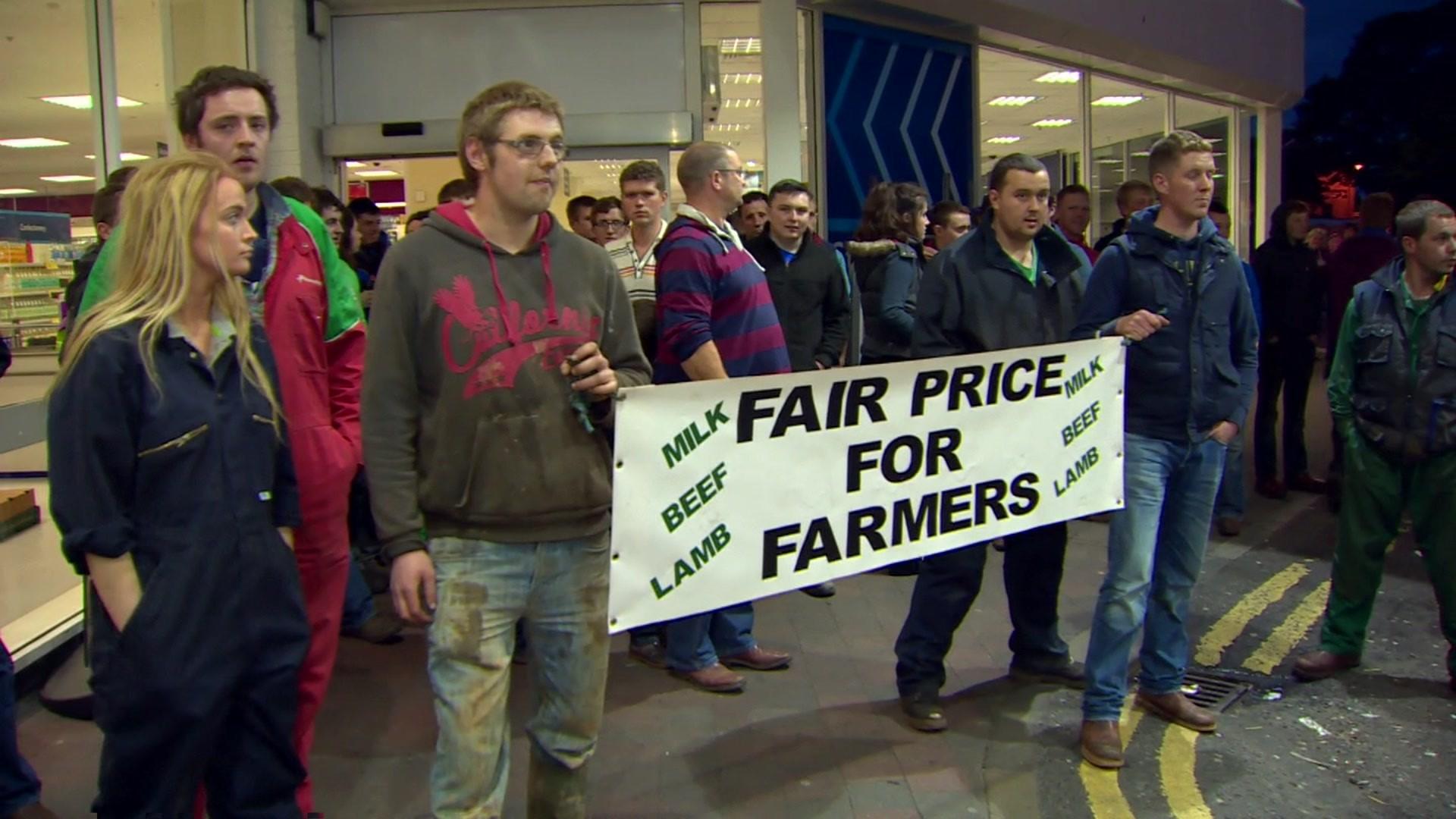Farmers announce 'action plan' over milk prices
- Published
Farmers led two cows in to a supermarket in Stafford to protest at the low price of milk, as Claire Marshall reports
Farming unions from across the UK have developed an action plan following an "urgent summit" to discuss milk prices.
The plan includes calls for labels to indicate British products and long-term contracts for farmers.
Some farmers are experiencing a "crisis" after being paid less for their milk than the cost of production, the National Farmers' Union has said.
Protests have included removing large quantities of milk from shops and blockading distribution centres.
'Dire situation'
Supermarket chain Morrisons will meet farming industry leaders on Tuesday to discuss the price row.
It will include the UK's four main farming unions - the NFU, NFU Cymru, NFU Scotland and the Ulster Farmers' Union - all of whom were involved in Monday's meeting.
The NFU said the new action plan, external included calls for:
UK farming ministers to meet urgently and for government to ensure farmers' contracts are longer term and more fair
Government to "urgently" ensure labelling rules mean British products are "clear and obvious"
Retailers to "stop devaluing" British food "purely to get customers through the door"
The EU to underwrite the short-term credit position of vulnerable farmers
The public to ask retailers what they are doing to ensure farmers receive a fair price
Farmers from Wales also joined the summit to discuss the price they get for lamb, which they say has reached a critically low level.
David Handley, from Farmers for Action, said the plan would be "driven home within days" and a letter sent to retailers.
"Our members... need one thing at the moment, and that is money. Because if we don't get money going into the winter, this industry is going to be in a very, very dire situation indeed."
He added "peaceful protest has worked" and would continue until a solution was found.

NFU president Meurig Raymond said: "Obviously the industry is in crisis... I've been farming for 45 years and this is the worst I've known."
On Sunday, two cows were taken down the aisles of a supermarket in Staffordshire as part of a protest by about 70 farmers.
Protesters have also been clearing supermarkets' shelves of milk in the so-called "milk trolley challenge".
NFU president Meurig Raymond says farmers face "a desperate situation"
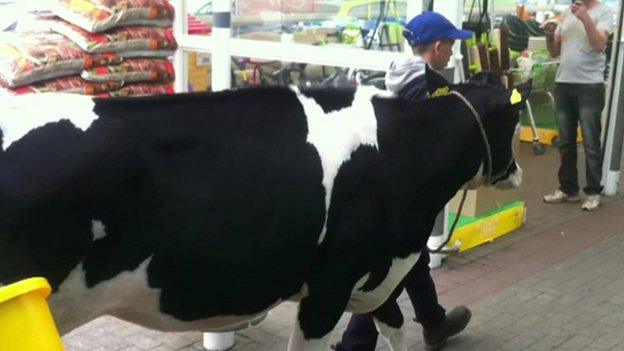
Cows were led into an Asda in Stafford on Sunday as part of the protests
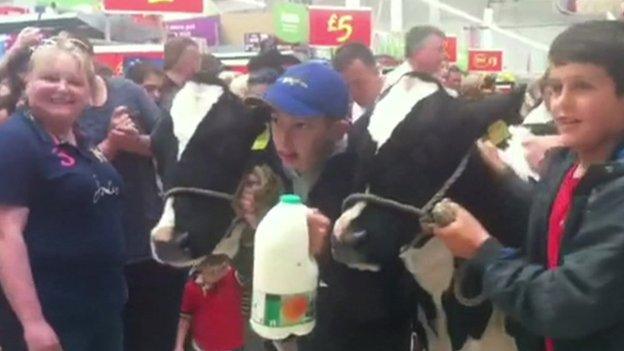
Customers posed for photographs with the cows before the animals were escorted out of the store by police
Arla, Britain's biggest milk co-operative, previously announced a price cut of 0.8p per litre - taking the standard litre price to 23.01p for its UK members.
British dairy organisation AHDB Dairy said the average UK farm gate price was 24.06p per litre in May, a decrease of a quarter over 12 months.
Farmers estimate it costs 30-32p to produce each litre of milk.

Case study
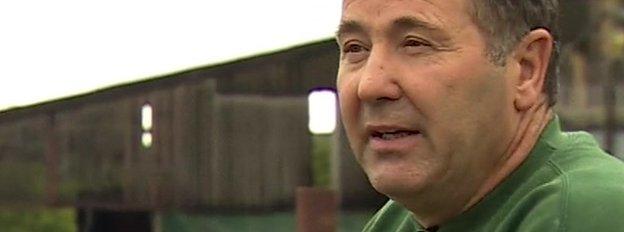
By Claire Marshall, BBC News
Geoff Bowles runs Ivy House Farm in Somerset, and his is one way to beat the dairy crisis - cut out the middle-men.
His herd of 120 Jersey cows produce around 600,000 litres of milk a year. He processes on site and sells the liquid milk, butter and cream directly to shops - 70% locally, 30% in London.
His produce is twice as expensive as the supermarkets - but he can't keep pace with demand and turnover is up year on year. Mr Bowles has helped more than a dozen farms to adopt his business model.
What's the downside? A lot more work, he says, because there is much more regulation and inspection. However, the workers on his dairy farm are smiling more than most - their future seems secure.

Patrick Holden, who is a farmer and founder of the Sustainable Food Trust, appealed to the industry to introduce a new labelling system.
He said: "There is only one way out of this in my opinion and that is if consumers have the chance to identify milk which is produced to a fair price and a fair treatment for the animals on the supermarket shelves."
A spokeswoman for the Department for Environment, Food and Rural Affairs said it maintained a "regular dialogue" with the industry.
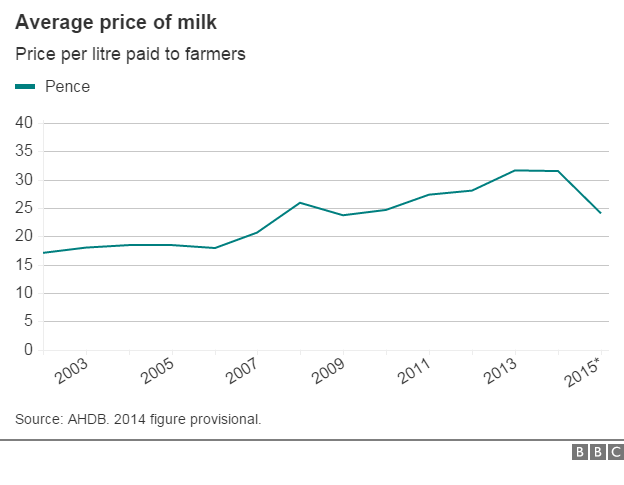
Morrisons said it was not seeking any further reductions in milk prices and would continue talks with the NFU.
Aldi said its milk prices had "remained consistently above" the farm gate price and Lidl said it worked closely with farm assurance schemes which champion British farming.
Arla said the co-operative was "acutely aware" of the difficulties farmers were facing.
- Published10 August 2015
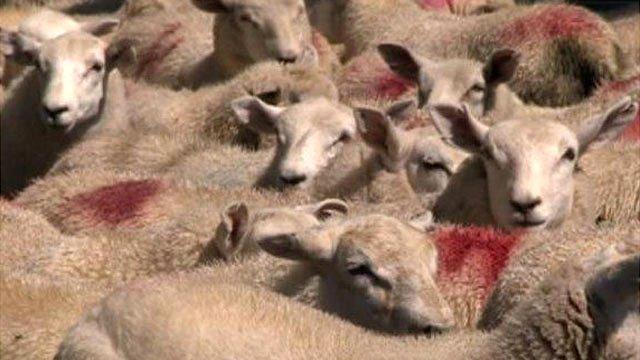
- Published9 August 2015
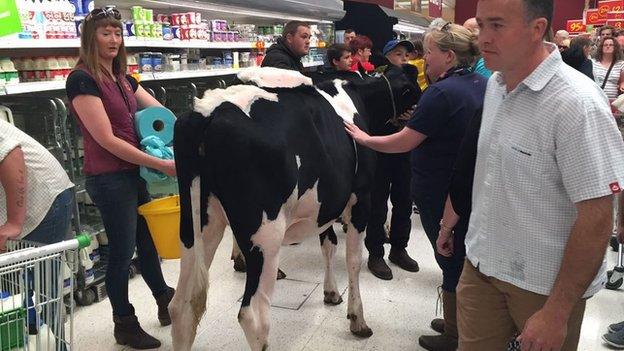
- Published7 August 2015
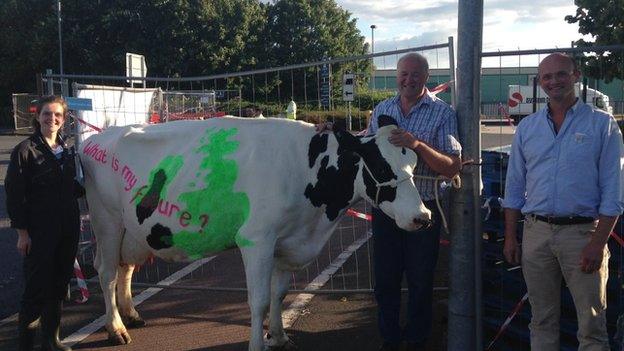
- Published7 August 2015
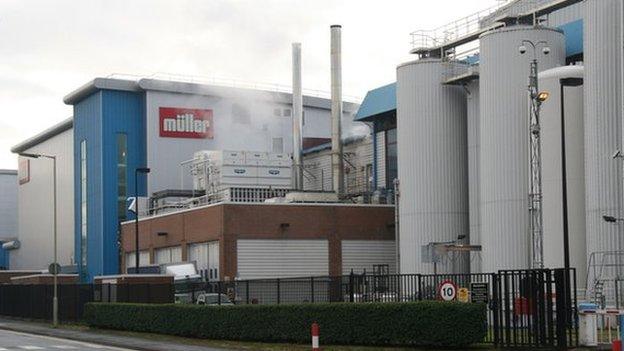
- Published4 August 2015
